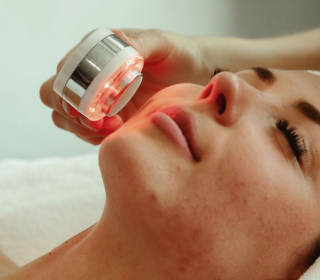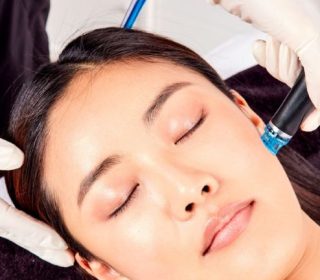A Comprehensive Guide to Psoriasis: All You Need to Know

One in fifty people suffer from psoriasis – itchy, scaly skin that can be inflamed and cause mental or physical problems. Healthista interviews Dr Alexis Granite about the psoriasis.
You will know what psoriasis is, and how difficult it can be to live with. Skin flakes with a scaly texture, that are itchy and inflamed. They never seem to disappear, no matter what.
Genetic and environmental factors as well as clinical characteristics are different for each skin condition.
According to the National Psoriasis Foundation, “A normal skin cell matures in 28-30 days and falls from the surface of the body.” The skin affected by Psoriasis matures and moves to the surface in just three to four days.
The skill cells can form raised, red, flaky patches that are itchy and painful. They are most common on the lower back, knees, elbows and scalp.
Psoriasis, an inflammatory, immune-mediated skin condition that affects one out of every 50 people, is common.
Psoriasis, which is similar to eczema and acne, affects one in fifty people. The disease can affect both men and woman at any age.
Kim Kardashian, Kris Jenner and Cara Delevingne, as well as Jonathan Van Ness have all publicly admitted that they suffer from Psoriasis.
Healthista interviewed Dr. Alexis Granite is a dermatologist with more than 14 years experience who has become a leading expert in aesthetic and medical dermatology.
What are the symptoms and signs of psoriasis
Rashes or patches with red, inflamed, skin that is often covered by loose scales are the first signs. The skin can be itchy, painful and even crack or bleed.
Psoriasis is most commonly found on the lower back, knees, elbows and scalp. It can also affect the nails, joints and scalp.

What causes psoriasis?
Psoriasis has a genetic component. Having a relative with the condition, particularly a first-degree relative, increases your risk of developing it.
Cold weather, stress and alcohol consumption, as well as secondhand smoke, are all common triggers.
Does psoriasis cause any long-term health problems?
Evidence shows that psoriasis can be associated with arthritis, obesity and depression. Type II diabetes and metabolic syndrome are also linked to inflammatory bowel diseases.
Psoriasis can have a negative impact on one’s mental health. Consult a dermatologist who has experience managing psoriasis in order to optimise your treatment.
Exercise, meditation, and hobbies are all ways to manage your stress and lifestyle. Speak to a mental specialist if psoriasis significantly affects your quality of living. Options include support groups, private counseling, cognitive behavioral therapy, and medication.

Can psoriasis treatment be done?
Psoriasis is not curable, but lifestyle changes and over-the-counter treatments can help manage the condition.
Emollients, or creams and ointments without fragrances, are essential for treating psoriasis. They can soften the skin and help prevent scaly spots.
Over-the-counter ingredients such as coal tar and salicylic, lactic, and urea can be used to remove dry skin and scales. Hydrocortisone topical cream is available over the counter to treat mild psoriasis.
Smoking and alcohol can trigger psoriasis.
Keep the skin moisturised by using a cream or ointment without fragrance.
Alternative therapies can help relieve the itching and burning of psoriasis. (Although scientific evidence is lacking, there are some alternative treatments that have been reported.) These include aloe gel, fish oils, dead sea salts, and Oregon grape.
Dermatologists may prescribe topical treatments for more severe psoriasis. These include prescription steroid creams and immunomodulator lotions.
UVB and PUVA light therapy are specialised types of light therapy that can be administered at the office, or using a device at home under the supervision of a healthcare provider. There are a variety of systemic medications that can be tailored for the individual.
Consult a dermatologist if you suspect you have psoriasis. A dermatologist can confirm your diagnosis, and discuss the best treatment options.
Dr. Alexis Granite has over 14 years experience in medical dermatology and aesthetics.
Board certified dermatologist in the United States and a consultant at the Specialist Register in Dermatology of the United Kingdom.
She is a British Association of Dermatologists member, the British Cosmetic Dermatology Group and the American Academy of Dermatology.









